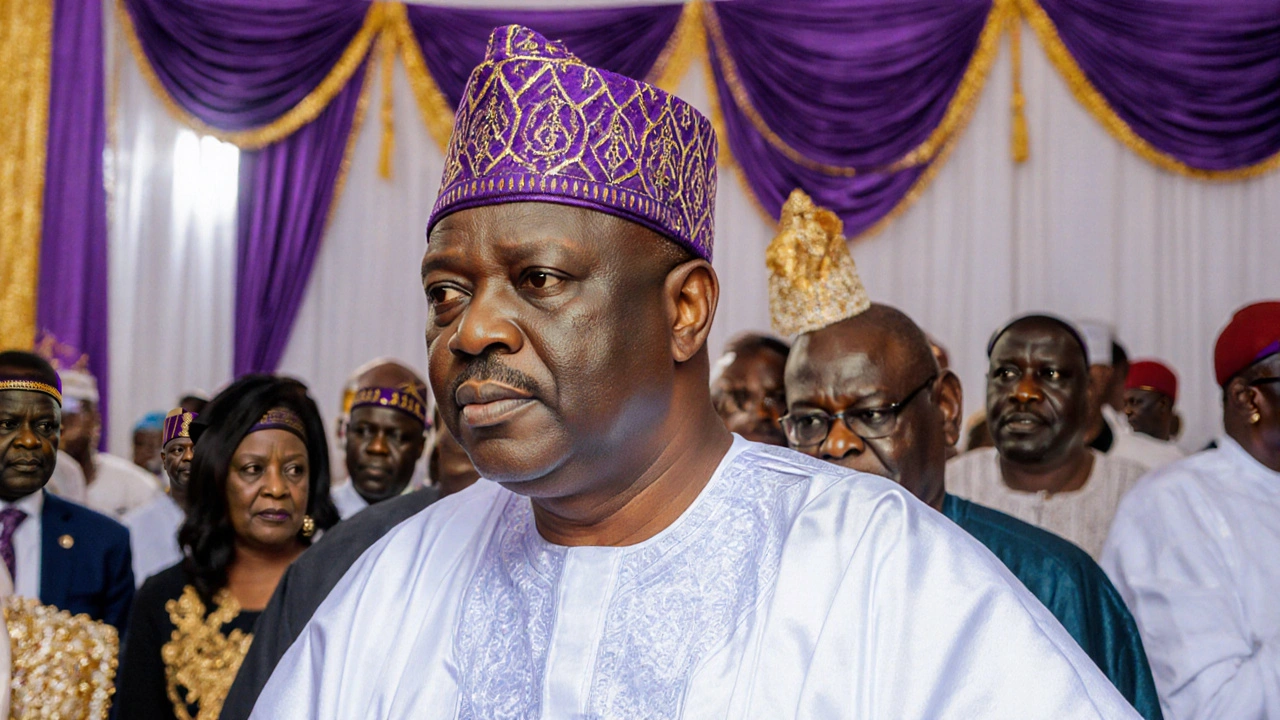If you’ve seen the name Rashidi Adewolu Ladoja pop up in South African or Nigerian news feeds, you probably wonder who he is and why he matters. In plain terms, Ladoja is a Nigerian politician who has moved between business, public service, and occasional media spotlight. He’s known for his outspoken style and for taking strong stances on governance issues.
Ladoja grew up in a middle‑class family in Lagos. He earned a degree in Business Administration before diving into the private sector. His early career was built around import‑export ventures and real‑estate projects, giving him a solid grasp of how money flows in and out of the economy. That business background later helped him navigate the political arena, where financial transparency (or the lack of it) is often a hot topic.
His first big political move came when he was appointed as a special adviser to a governor in the early 2010s. The role put him on the front lines of policy‑making, especially in infrastructure development. Over the years he shifted gears, joining different parties and running for local office a few times. Though he never clinched a top‑tier seat, his campaigns highlighted issues like youth unemployment and corruption in public contracts.
What keeps Ladoja in the news today is his occasional commentary on national elections and his criticism of both opposition and ruling parties. He’s not shy about calling out what he sees as “political circus” when policies don’t match the promises made to the public.
In the past few months, Ladoja has been quoted in several South African outlets discussing the impact of regional trade agreements on Nigerian businesses. He also appeared on a podcast where he warned that unchecked political patronage could derail economic recovery efforts in West Africa.
Another buzz‑worthy moment was his involvement in a charity drive for flood‑affected communities in the Niger Delta. While some saw it as a genuine effort, others speculated it was a strategic move to boost his public image ahead of upcoming local elections.
Even if you’re not directly involved in Nigerian politics, Ladoja’s story offers a snapshot of how business leaders transition into public roles in Africa. His career shows the fine line between advocacy and self‑promotion, a balance many emerging leaders wrestle with.
For readers looking for the latest scoop, keep an eye on his social media feeds and local news sites. He tends to release statements just before major political events, so his comments can give you a heads‑up on shifting narratives.
Bottom line: Rashidi Adewolu Ladoja is a figure who blends entrepreneurship with political ambition. Whether you view him as a reformist voice or a savvy media player, his actions influence discussions on governance, trade, and community development across the region.
Posted by
Siseko Tapile
15 Comments

The 44th Olubadan of Ibadanland was crowned on September 26, 2025, in a grand ceremony at Mapo Hall. While dignitaries and thousands of citizens attended the main event, no official information about a follow‑up celebration at The Patio has emerged. This article examines what is known about the coronation, why the after‑party remains unverified, and what observers can expect.
read more